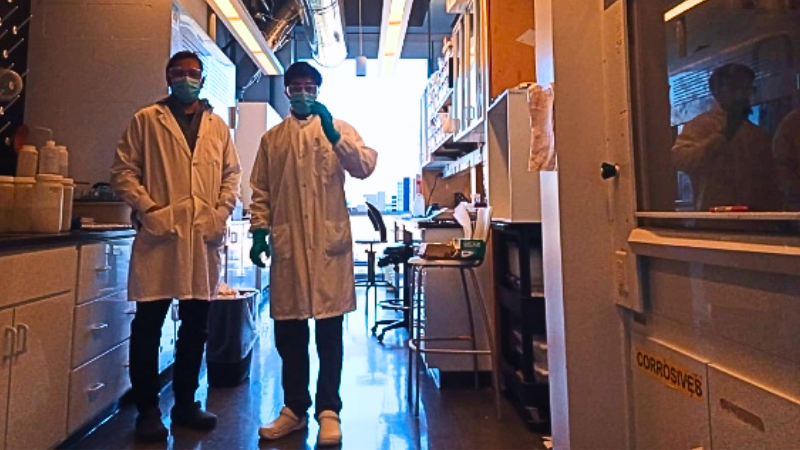Two graduate students from Universidad Católica’s (UC) Geography Institute spent two months as visiting researchers at the Columbia Climate School Lamont-Doherty Earth Observatory (LDEO). Rodrigo Hevia and Fabián Riquelme – students of the Master in Geography and Geomatics, and the PhD in Geography respectively – travelled to New York in November 2022 and stayed until the end of the year working with Lamont research professors in the Division of Geochemistry Joerg Schaefer and Michael Kaplan.
Founded in 1949 to study the origin, evolution, and future of the natural world, today LDEO is among the world’s leading research institutions and is home to hundreds of researchers who perform in-depth study of the planet in order to provide knowledge on a variety of fields related to climate and earth sciences.
Hevia and Riquelme studied glacial reconstructions and past climates at Lamont’s Schaefer Cosmo Lab, a laboratory where cosmogenic nuclide techniques are developed and applied to address key questions in climate and glacier science, sea level change, quaternary geology and extreme events. There, they worked closely, in addition, with Research Technicians Roseanne Schwartz and Jean Hanley, processing rock samples in order to establish a chronology of the advances experienced in the last 12,000 years by two Chilean glaciers: Grey, located in Torres del Paine National Park (in Patagonia), and Cipreses (in the Río los Cipreses Natural Reserve in central Chile). About their work at the lab, Kaplan said: “The samples that Fabián and Rodrigo are working on, as part of their graduate research projects, help us to document better how glaciers and climate have changed in southern and central Chile in the past at different timescales,” adding that the knowledge of natural glacier-climate variability, whether over thousands of years or recent centuries, “provides geologic context for present changes that are happening in Chile now.”

